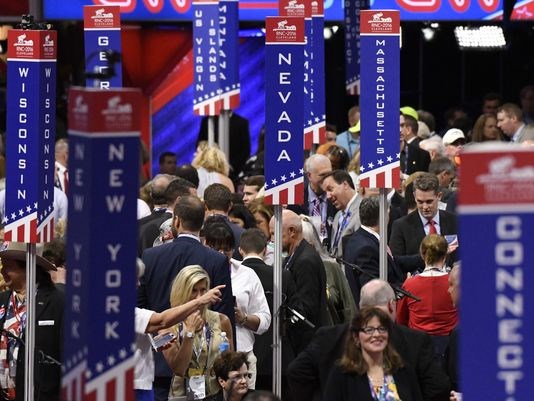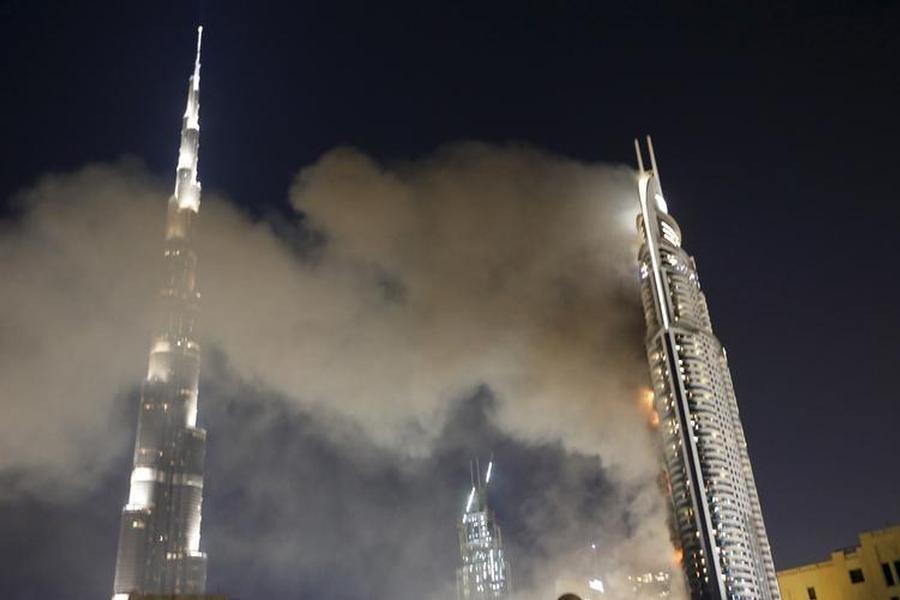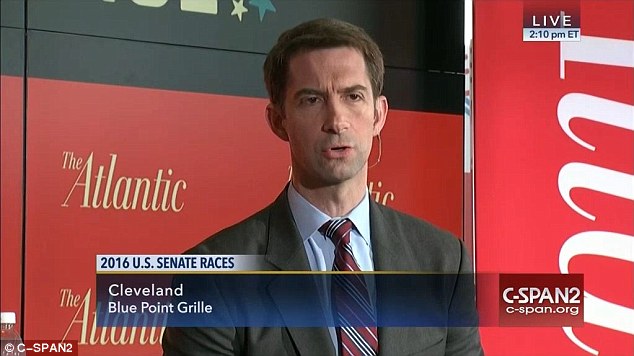Surprise! House of Cards just dealt NZ a hand
Mar 06, 2016
The first few episodes of season four are split between Frank's re-election and Claire forming a strategy for life post-FLOTUS. The battle of power has engulfed the Underwoods and Spacey's character struggled during his presidential campaign in season 3.
EPA wants states to double-check drinking water procedures
Mar 06, 2016
The more corrosive water from the Flint River leached more lead from the city pipes than Detroit's water. Residents were officially told not to drink the water due to that lead contamination in October 2015.
Hillary Clinton urges candidates to present 'credible' economic plan
Mar 06, 2016
The GOP front-runner tells his supporters: "After making this huge U-turn to Kansas, if I lose, I'm going to so angry at you". This "empathy gap" propelled President Obama past Mitt Romney in 2012 and almost allowed socialist Sen.
Feeding babies peanuts cuts allergy risk
Mar 06, 2016
That kind of thinking has led to a number of studies, including the Learning About Peanuts (LEAP) trial published a year ago . A new study shows that feeding peanuts to babies and young children may help protect them from peanut allergies later.
Oscars brings in third-lowest viewership in history
Mar 06, 2016
Spotlight - a drama about the Boston Globe's exposé on sexual abuse in the Catholic church won the coveted Best Picture award. Rock said "We had real things to protest" during the 1960s and '70s, during other years of only white thespian nominees.
Conor McGregor gets a record million-dollar purse at UFC 196
Mar 06, 2016
But there is no doubt that a potential fight between the two high-profile stars would be a ratings and pay-per-view bonanza. The Irishman has proven his skill at 145 pounds, ruling the featherweight division with Jose Aldo as a concrete example.
Fox gets 16.9 million viewers for GOP debate
Mar 06, 2016
This, as evidenced by poll numbers, has not worked, and, last week, Florida Senator Marco Rubio chose to fight fire with fire. I guess loyalty is only a one-way street where you must be loyal to some group but they owe you nothing.
New rumors point to ultra-thin iPhone 7, 12-megapixel iPad camera
Mar 06, 2016
The Mac Otakara report in question also talks about the lightning connector, and how it could further be thinned down by Apple. There will also be no headphone jack on the new model due to the revamped Lightning port, which will now double as a jack.
Conor McGregor-Nate Diaz faceoff nearly turns into brawl
Mar 06, 2016
McGregor's arsenal has picked apart opponents who have tried to flee his range, and Diaz likely won't fall prey to that. This will be Holm's first title defense since her stunning knockout victory over Ronda Rousey in November.
Check out the new Ghostbusters trailer
Mar 06, 2016
Slimer returns: The hungry green ghost from the original makes a brief appearance in the trailer and features in the new film. Feig shared shots of Ecto-1, the famous vehicle used to transport the Ghostbusters from one spooky scene to the next.
Trump responds to Rubio's crude remark with one of his own
Mar 06, 2016
John McCain, the losing Republican nominee in 2008, issued a statement endorsing Romney's remarks. Trump said he was starting to do that, but defended that and other business decisions he'd made.
Musicians and media figures celebrate Murdoch-Hall wedding
Mar 06, 2016
The church also holds a special significance for Rupert as it contains a plaque dedicated to his late father, Sir Keith Murdoch. Among the prestigious guest list was composer Andrew Lloyd Webber, playwright Sir Tom Stoppard and Sir Michael Caine.
Stolen N Ireland fire truck smashes into row of cars, houses
Mar 06, 2016
DUP MLA Gordon Lyons said that the theft of a fire engine was an appalling act that put lives at risk. The idiot crooks blasted through the fire station causing substantial damage to the building.
Toyota adds 331000 cars to global Takata recall
Mar 06, 2016
Added recalls in Japan number 3,000 and include Avensis and Lexus SC 430 models made from May 2007 to July 2010. Toyota Motor Sales, USA is expanding two of its recalls involving Takata front passenger air bag inflators.
Spurs paying the price - boss
Mar 06, 2016
Not on this night, though, on Tottenham's last-ever trip across east London to the soon-to-be demolished Upton Park. Losses happen, and it's better to be able to say that Spurs finished the match strongly than otherwise.


